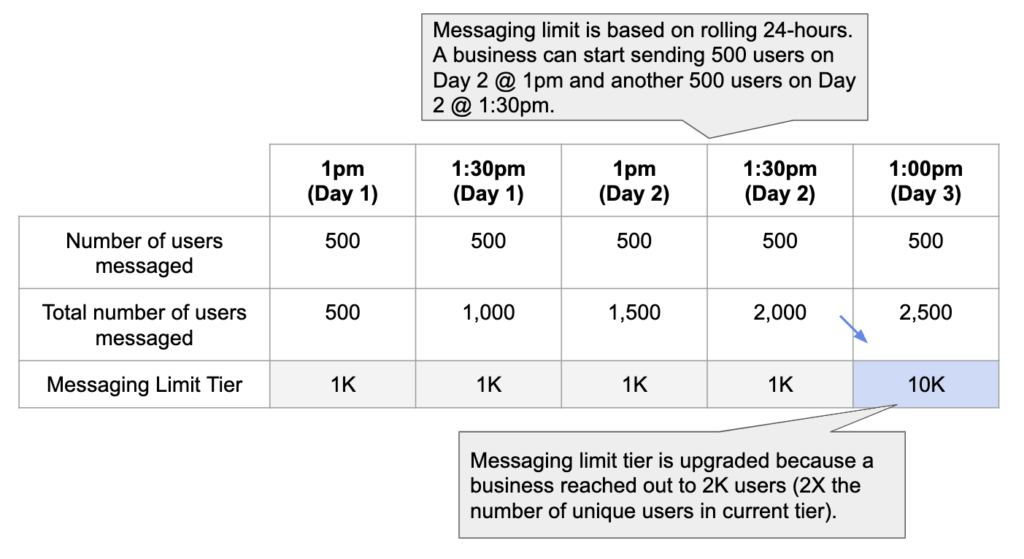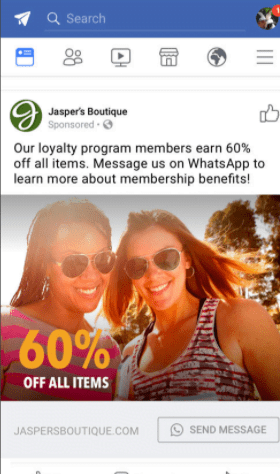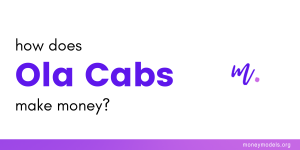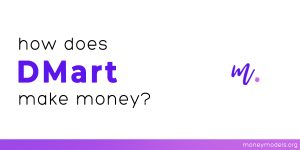Everyone knows WhatsApp – The texting app that took the world by storm and replaced “SMS” forever! But being a free app with 1.6 billion users, how does Whatsapp make money? And why did Facebook pay $17.9 billion to buy WhatsApp?!
The answer lies in the beautiful business model of WhatsApp. Though they never expected their “tiny app” to ever reach so many users, their initial planning helped them gain a ton of traction quickly!
How does WhatsApp make money?
WhatsApp makes money by charging WhatsApp Business API subscribers for slow/delayed replies to customers. If a business responds to its customer queries after 24 hours, they are charged $0.003 to $0.005 per message.
What is WhatsApp? [History]

We developed WhatsApp because we wanted to build a product that people would love to use. Something that they’d wake up to and be excited to look at.
Jan Koum – Co-founder, WhatsApp
Jan Koum and Brian Acton launched WhatsApp in 2009.
They had been employees at Yahoo! and had taken some time off work.
Fun Fact – WhatsApp’s founders applied to Facebook for a job during the time off. And guess what? Facebook rejected them! So they continued to work on their side project “WhatsApp”.
Both Jan and Brian expected nothing from this side project.
But surprisingly, a whole bunch of people started using WhatsApp very soon after its launch!
The application was an extremely seamless transition from regular text SMS to multimedia messaging. So more people began inviting their friends and family to join the platform.
This viral effect got WhatsApp to over 400 million users by 2014.
Jan and Brian had no plans on using ads in WhatsApp. They were firm in their belief that ads spoil the user experience. And, in their own words the founders stated:
No one would wake up excited to look at ads!
Jan Koum
WhatsApp decided it was time to monetize the platform and added a small $1/year subscription service.
On October 6, 2014, WhatsApp was acquired by Facebook (NAS: FB) for $17.19 billion on October 6, 2014. The company issued approximately 178 million shares of Class A common stock and paid $4.59 billion in cash as consideration.
WhatsApp Blog
But, Mark Zuckerberg had other plans. After all, the $1.6 billion annual revenue would mean nothing to Facebook!
With the disagreement on how WhatsApp would be monetized, Jan and Brian decided to quit their positions and cash out their shares in WhatsApp.
Also read: How does BeReal make money? [Updated]
How Does WhatsApp make money in 2020?
WhatsApp currently has two revenue sources:
- WhatsApp Business API subscription
- Click-to-Whatsapp ads
There are potential future revenue sources in the making and Whatsapp has been planning ahead to identify monetization methods for the WhatsApp user base of 2+ billion monthly active users.
Today, we’ll talk about the two sources how the free app Whatsapp messenger
1. WhatsApp Business API Subscription
In August 2018, WhatsApp announced its first revenue-generating product, WhatsApp for Business API.
Since they launched their WhatsApp Business application, they’d been tinkering around to improve the app to suit business needs.
Come 2020, many banks now offer banking on WhatsApp, while quite a lot of the bigger brands use WhatsApp to stay in touch with users and answer support queries using this messaging app.
Businesses can even use the WhatsApp Business API to send customised notifications with relevant, non-promotional content such as shipping confirmations, appointment reminders or event tickets
Only a few businesses have access to the WhatsApp API. You can fill in a form here to apply for API access.
WhatsApp isn’t limiting access to the API based on where companies are located, it says, nor does it have requirements for those businesses – like how many messages they need to send per month.
This is another piece of misinformation out there, as businesses try to decipher who’s getting in.
Some have been saying that API customers need to send at least 100,000 messages a month if they expect WhatsApp to approve them during this preview phase. This is inaccurate, WhatsApp says.
Techcrunch
What is the WhatsApp for Business API?
WhatsApp for Business API is a self-hosted solution for enterprises to reach, connect, and respond to customers. It lets businesses automate many of their mundane queries by responding to users with an automated chatbot that replies through the business API.
Because of the same, customer support calls go down.
Now the only clause here is, even if a business has your phone number, they need your consent to send out the message. Simple as that.
How does WhatsApp earn money with their Business API?
WhatsApp’s business API customers are charged per message sent. When a new business registers for the API, they have to follow a tiered approach to sending messages in bulk.

There are messaging tier limits and each business starts at the lowest tier, that’s Tier 1.
- First Tier: 1K unique messages every 24-hours.
- Second Tier: 10K unique messages every 24-hours.
- Third Tier: 100K unique messages every 24-hours.

The tier limits are upgraded as WhatsApp detects higher quality messages being sent out by businesses. And so, the more messages businesses send, the more money WhatsApp makes.
2. Click-to-WhatsApp Ads
Imagine browsing through your Facebook feed and seeing an ad for something cool! Wouldn’t it be so convenient to directly get in touch with someone from the company?

That’s exactly what Click-To-WhatsApp ads do. Have a look at the image above. The “Send Message” button allows users to ask your queries directly to the business over WhatsApp.
The benefit for businesses here is simple: Most people browsing Facebook, will already have WhatsApp installed on their phone. It reduces the barrier to communication and because of that, businesses get direct phone numbers of interested users!
3. How can Whatsapp make money in the future – Potential revenue generation sources
The company is working on integrating WhatsApp Payment worldwide and make it easy for WhatsApp business app users to receive payments from their customers without asking them to leave the chat screen!

Somewhere around 2018 and 2019, WhatsApp received permission to test out Whatsapp Pay. It’s still being tested in different countries and is currently available in Brazil.
Though we don’t know how soon WhatsApp Pay will be rolled out, they’re already available in two countries now.
WhatsApp Sources of Revenue and Business Model
WhatsApp’s value proposition is the reason why it was initially built by its founders – “A product that people just loved to used and wanted to wake up and look at”.
Revenue sources for WhatsApp
- WhatsApp Business API subscription
- News feed ads
- Whatsapp Pay*
- Whatsapp Status Ads*
* Potential revenue sources for the future
Whatsapp Growth and Marketing Strategy
How did WhatsApp gain the traction that it currently has? And can you replicate their marketing for your own business?
Whatsapp was built with the end user in mind. Every aspect of the application catered to a need that users had.
It seamlessly integrates with the phone numbers resembling regular text messages. It offers additional features like multimedia messaging which would cost much higher via regular MMS.
And this “SMS replacement” app compelled users to get more of their family and friends onboard which created a true-viral effect.
Replicating the success may not be possible by copying their strategy. But you surely can incorporate a sharability factor in your business to get users to promote you.
Word-of-mouth is the most powerful promotion that you can get.
FAQ
What is the income of WhatsApp?
How does Whatsapp Business work?
What is the income source of WhatsApp?
Who owns WhatsApp?
What kind of messaging does Whatsapp support?
What is the net worth of WhatsApp?
Can we earn money from WhatsApp?
Conclusion
I hope you enjoyed reading this article! We haven’t covered the competitors of WhatsApp here since there really aren’t any competitors that are as big. Apart from Snapchat, and Telegram which tried to beat WhatsApp, the text messaging app space has been owned by the company since it started out.
There’s a lot that goes into building businesses and startups. And with each revenue model that we cover, we understand what the founders did to reach their success.
Stay tuned for more writeups!


![Read more about the article How does Humble Bundle make money? [Business Model]](https://moneymodels.org/wp-content/uploads/2021/03/How-does-Humble-Bundle-make-money-1-300x150.png)

